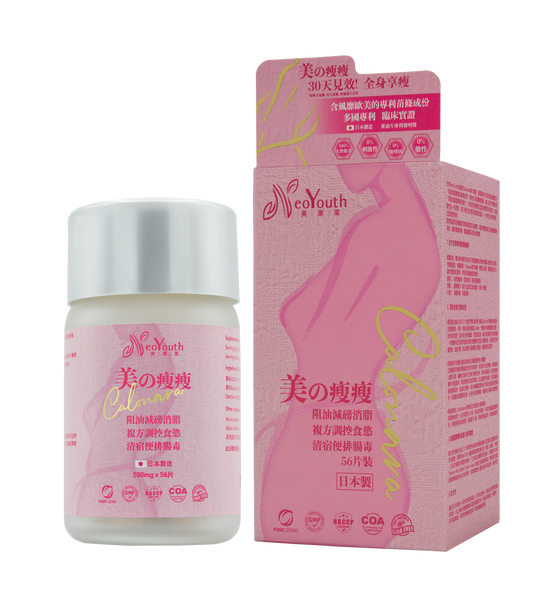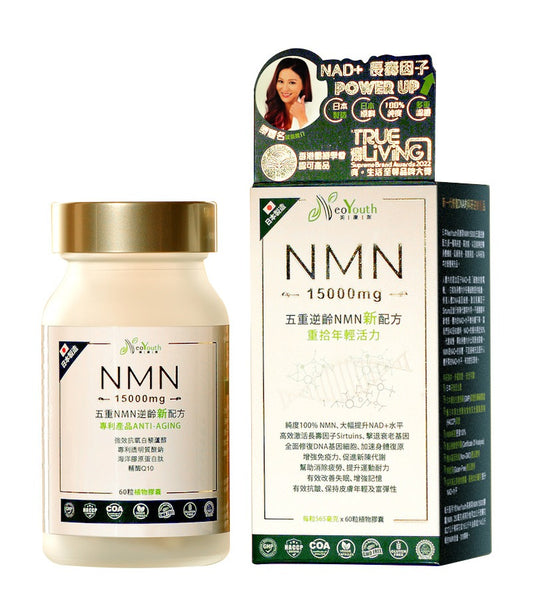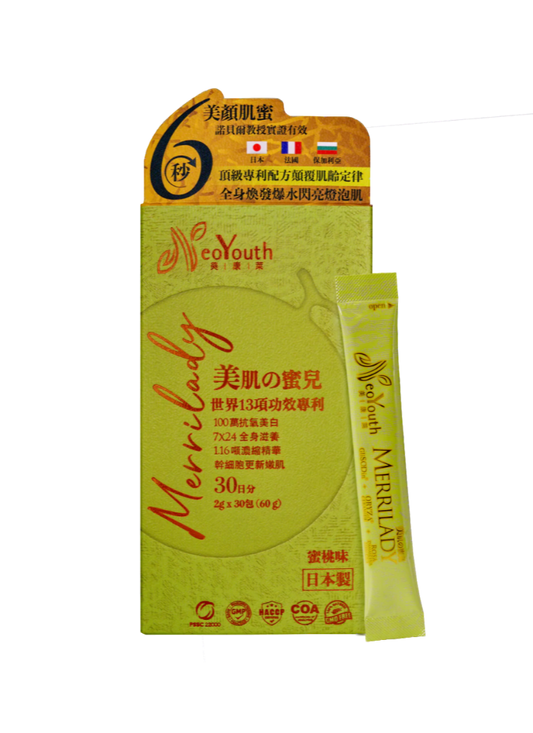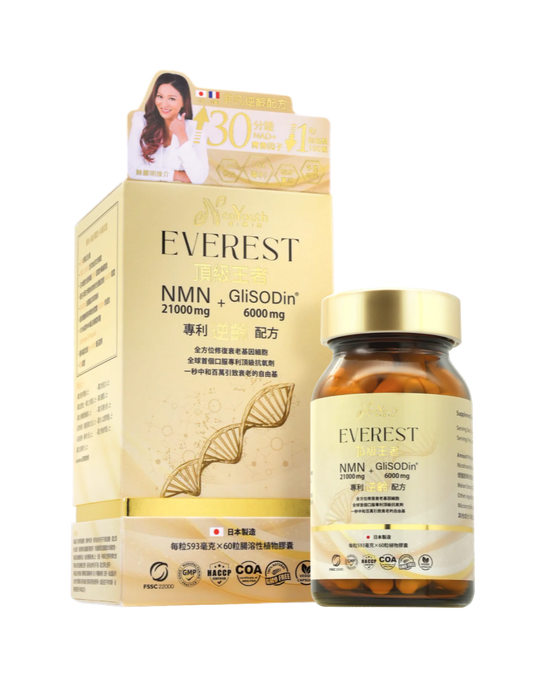When we are injured, our wounds become inflamed. But even without visible wounds, our bodies can experience chronic inflammation, which may even increase the risk of cancer! What are the symptoms of inflammation in the body? And what lifestyle habits, foods, and health supplements can help relieve inflammation?
Is an inflammatory response in the body normal?
Inflammation is a normal bodily response. Inflammation is an immune response, a way the body fights damage or infection. When the body is injured or infected, the immune system releases substances such as white blood cells and cytokines to fight the threat, and these substances cause an inflammatory response. Inflammation helps the body eliminate harmful substances and promotes tissue repair. When we are injured, inflammation causes the wound to become red, swollen, and painful; this is the body's way of trying to heal.
However, inflammation in the body is a double-edged sword. If wounds and infections are not effectively controlled, they can lead to chronic inflammation. Chronic inflammation can damage normally healthy tissues in our body, increasing the risk of chronic diseases such as cancer, heart disease, and diabetes. The most well-known example is that hepatitis B, C, and D can all lead to liver cancer. Therefore, although inflammation is a normal physiological response, we should take precautions to prevent chronic inflammation.
Acute and chronic symptoms of bodily inflammation
Symptoms of inflammatory reactions in the body can be divided into acute and chronic:
Acute inflammation
Acute inflammation is the body's immediate defense response, usually short-lived, and common symptoms include:
- Fever: A common inflammatory response can cause a rise in body temperature, resulting in a fever.
- Redness and swelling: Blood vessels in the inflamed area dilate, leading to increased blood flow and resulting in redness and swelling.
- Pain: Nerve endings in the inflamed area are stimulated, causing pain.
- Functional impairment: Inflammation may cause functional impairment in the affected area, preventing it from functioning normally.
Chronic inflammation
Chronic inflammatory responses in the body often have subtle symptoms, but they can persist for a long time and have profound health consequences, including:
- Cell and tissue damage: The long-term presence of inflammatory substances can damage normally healthy cells and tissues.
- Immune system disorder: Persistent inflammation may cause immune system dysfunction, making it unable to identify and eliminate diseased cells in a timely manner.
- Chronic diseases such as arthritis, diabetes, cardiovascular disease, and even cancer are all associated with long-term chronic inflammation.
Note that chronic inflammation may increase the risk of cancer.
In addition to chronic diseases, we should pay attention to three physical conditions caused by chronic inflammation, all of which increase the risk of cancer, including:
Damage to genes: Chronic inflammation can cause the body to produce a large number of free radicals, which can damage the gene arrangement of cells, leading to gene mutations and the development of cancer cells.
Immune system dysfunction: Chronic inflammation can suppress the body's immune system, making it unable to effectively recognize and eliminate cancer cells.
Promoting cell proliferation: Chronic inflammation produces pro-inflammatory factors that promote cell proliferation and increase the risk of cancer cell growth.
Methods to improve the body's inflammatory response
To prevent chronic inflammation, the following methods can be used in daily life:
A healthy lifestyle includes a balanced diet, regular and moderate exercise, sufficient sleep, and avoiding tobacco and alcohol.
Control your weight: Obesity increases the risk of chronic inflammation, so it is recommended to control your weight.
Reduce mental stress: Mental stress can raise cortisol levels in the body, exacerbating inflammation. Therefore, if you experience stress in your life, you should seek ways to relieve it.
Prevention and treatment of wound infection: After a wound becomes infected, bacteria can spread throughout the body via the bloodstream, causing an inflammatory response throughout the body.
However, if you suspect you have symptoms of chronic inflammation, it is recommended that you undergo a physical examination or see a doctor and receive treatment under the guidance of a physician.
Diet to improve inflammation
1. Foods rich in Omega-3 fatty acids
- Deep-sea fish: salmon, mackerel, sardines, at least twice a week, can suppress inflammatory substances (such as prostaglandins) in the body.
- Flaxseed and chia seeds: plant-based sources of Omega-3, suitable for vegetarians, and can be added to breakfast cereals or salads.
2. Antioxidant-rich fruits and vegetables
- Berries (blueberries, strawberries): contain anthocyanins and vitamin C, which neutralize free radicals and reduce inflammation.
- Dark green vegetables: Spinach and kale contain lutein and vitamin K, which protect cells from damage.
- Cauliflower: Glucosinolates are converted into isothiocyanates, which regulate immune responses.
3. Fruits and nuts containing healthy fats
- Avocado: Contains monounsaturated fatty acids, vitamins B and C, and lutein, which enhance immunity.
- Walnuts and almonds: contain Omega-3 and antioxidants, and lower C-reactive protein (CRP).
4. Whole grains and fiber
- Oatmeal and brown rice: The dietary fiber they contain promotes gut health and reduces chronic inflammation caused by endotoxins.
5. Spices and Beverages
- Turmeric and black pepper: Curcumin inhibits NF-κB inflammation, and consuming it with black pepper may improve its absorption rate.
- Green tea: EGCG (estrate catechins) helps reduce pro-inflammatory factors IL-6 and TNF-α.
General dietary recommendations for anti-inflammatory treatment
While consuming Omega-3, one should also avoid foods high in Omega-6, including refined seed oils such as corn oil, sunflower oil, and canola oil, and replace them with unrefined oils such as olive oil.
Foods containing antioxidants, vitamins, and minerals can also help suppress inflammation in the body. Eat plenty of fruits and vegetables of different colors, and consume more fish and seafood. Avoid high-sugar foods and processed foods, as high blood sugar can exacerbate inflammatory responses in the body.
Health supplements that help fight inflammation in the body
In addition to a regular diet, you can also take health supplements to improve inflammation. Here are some recommended types of supplements:
- Fish oil (containing EPA+DHA)
To reduce inflammatory substances such as IL-1 and TNF-α, it is recommended to consume a total of 1 to 2 grams of EPA+DHA daily, which is suitable for those who do not consume enough deep-sea fish in their diet. - Curcumin
To inhibit COX-2 enzyme activity and reduce joint and muscle inflammation, it is recommended to choose compound products containing piperine to enhance the effect. - Vitamin D
It regulates the function of immune cells, and a deficiency can easily aggravate chronic inflammation. It is recommended to supplement with 800 to 1000 IU daily. - Grape seed extract
Proanthocyanidins (OPCs) have strong antioxidant capabilities and inhibit the activity of the inflammatory enzyme COX-2. - Probiotics
To regulate the balance of gut microbiota and reduce the immune overreaction caused by leaky gut syndrome, choose compound products containing lactobacillus and bifidobacteria. - Pumpkin seed oil or extract
Arginine, a natural amino acid, can be converted into nitric oxide, promoting vascular health, while polyphenols directly inhibit inflammatory responses.
Resveratrol is recommended as a health supplement for body inflammation.
For a more effective and targeted improvement of inflammatory symptoms, consider supplements specifically formulated for inflammation, such as resveratrol. Resveratrol has anti-inflammatory properties that can help soothe inflammation in the body.
For people over 50, the immune system inevitably weakens, making them more susceptible to illness. Those with low immunity and poor health are more easily invaded by bacteria or viruses. When threatened, the body automatically activates its defense mechanisms, with the immune system using white blood cells to eliminate the viruses or bacteria, simultaneously triggering inflammation. When resveratrol detects a viral or bacterial invasion, it activates these defense mechanisms, helping cells fight inflammation to reduce the damage caused by the virus.
NeoYouth's NMN 15000mg+12000Ex product from Japan contains 50mg of resveratrol per capsule. Its antioxidant properties neutralize free radicals in the body, prevent cell inflammation, help improve symptoms of inflammation, and also revitalize and maintain a youthful appearance. It is an ideal health supplement for preventing inflammation.
References:
1. Good Morning Health - Why Does Chronic Inflammation Lead to Cancer? Anti-inflammatory Solutions for Cancer Patients
2. PanSci - The appearance of "chronic wounds" indicates an underlying disease in the body!
3. Little Herbal - The real culprit behind cancer is actually chronic inflammation. Want to prevent cancer? Start by fighting inflammation!
4. Resveratrol has excellent antioxidant effects, promoting a healthy complexion.
5. A new dietary habit of refusing to eat "refined seed oils": What are seed oils? Why not eat seed oils?





